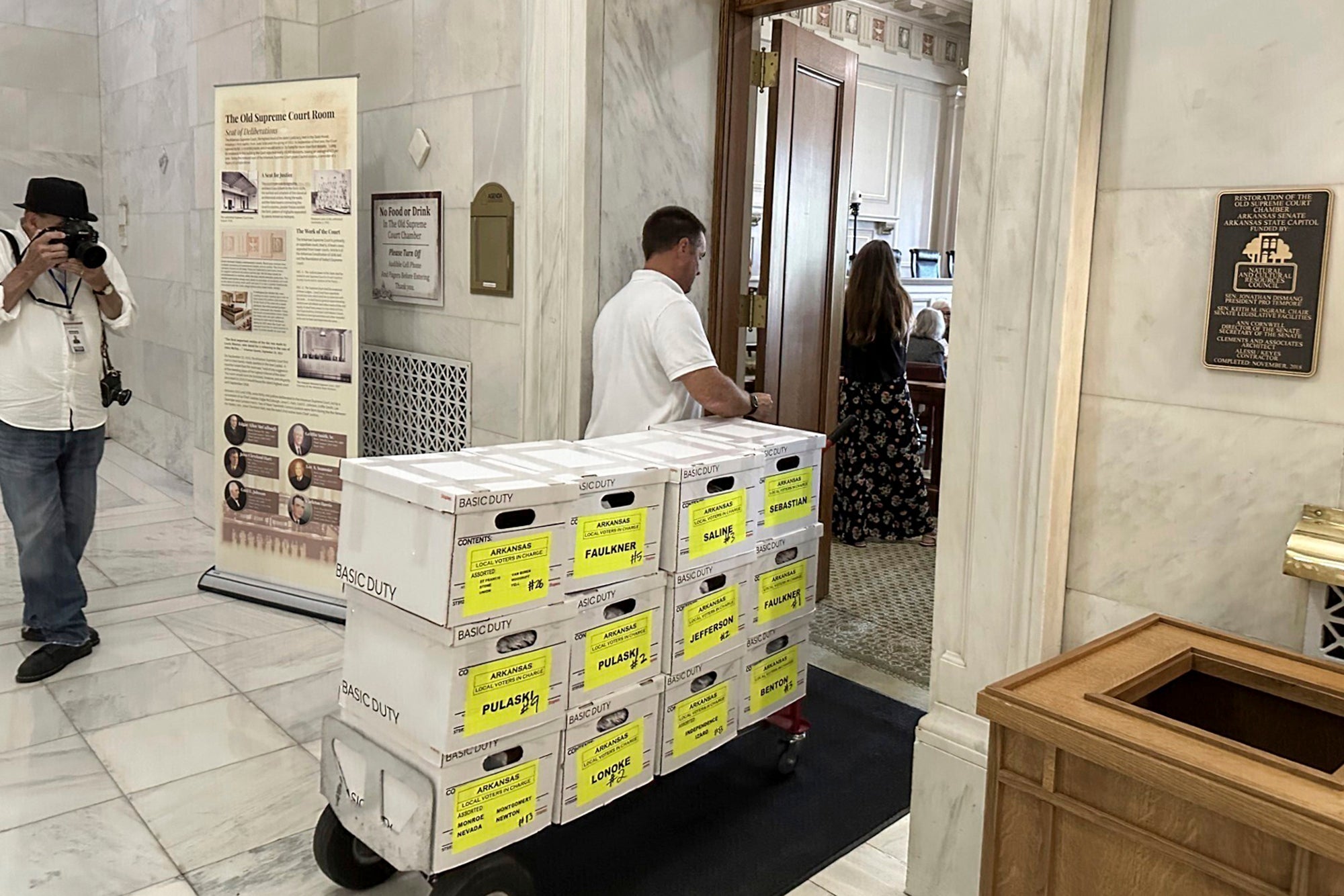Arkansas Supreme Court upholds wording of ballot measure that would revoke planned casino's license
The Arkansas Supreme Court has upheld the wording of a ballot measure that would revoke the license issued for a planned casino

The Arkansas Supreme Court on Thursday upheld the wording of a ballot measure that would revoke a planned casino's license, rejecting an effort to disqualify a proposal that has led to millions of dollars in campaign ads and mailers.
In a 6-1 ruling, justices rejected a lawsuit that claimed the proposed constitutional amendment was “riddled with errors.” A state panel this year issued the license to Cherokee Nation Entertainment to build the casino in Pope County.
Cherokee Nation Entertainment and an affiliated group, the Arkansas Canvassing Compliance Committee, filed a lawsuit challenging the measure. The court on Monday rejected the first part of the lawsuit that claimed the group behind the measure violated several signature gathering laws.
In Thursday's ruling, justices rejected arguments that there were several flaws with the measure. The lawsuit claimed that, among other things, it was misleading to voters.
“In sum, we hold that the popular name and ballot title are an intelligible, honest, and impartial means of presenting the proposed amendment to the people for their consideration,” Justice Karen Baker wrote in the majority opinion. “We hold that it is an adequate and fair representation without misleading tendencies or partisan coloring.”
The proposed amendment would revoke the license granted for a Pope County casino that has been hung up by legal challenges for the past several years. Pope County was one of four sites where casinos were allowed to be built under a constitutional amendment that voters approved in 2018. Casinos have already been set up in the other three locations.
The political fight over the casino amendment has been an expensive one that has dominated Arkansas' airwaves. The Choctaw Nation of Oklahoma has spent more than $8.8 million on the campaign in favor of the proposed amendment. Cherokee Nation Businesses has spent $11.6 million campaigning against the measure.
Supporters of the amendment said they were pleased with the ruling.
"Issue 2 keeps casinos from being forced on communities that vote against them,” Hans Stiritz, spokesperson for Local Voters in Charge, the campaign for the amendment, said in a statement. “We’re grateful for the Arkansas Supreme Court’s final decision to affirm the certification of Issue 2, keep it on the ballot, and allow the vote of the people to be counted.”
The proposed amendment would remove the Pope County casino's authorization from the state constitution. It would also require future casino licenses be approved by voters in the county where it would be located.
In a dissenting opinion, Justice Shawn Womack called the ballot measure “plainly misleading” because it doesn't make clear to voters that the proposal would revoke Pope County's existing license.
“Thus, voters are not able to reach an intelligent and informed decision either for or against the proposal, and thus, they are unable to understand the consequences of their votes,” Womack wrote.
Bookmark popover
Removed from bookmarks